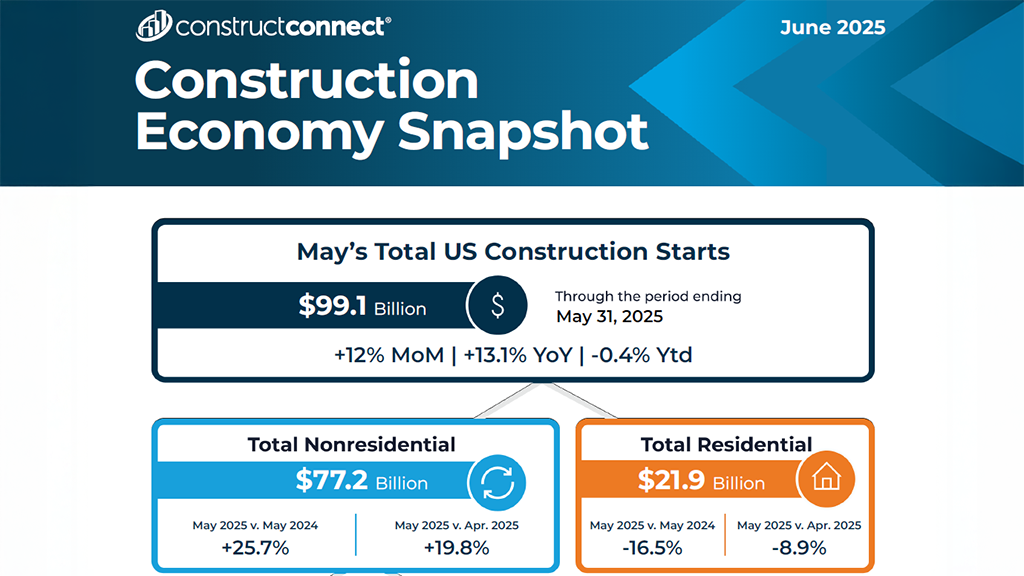Ěý
Key Points
- May 2025 Nonresidential US Construction Starts were $77.2 billion, an increase of $12.8 billion, up 19.8% over last month.
- »¨˝·Ö±˛Ą Chief Economist Michael Guckes reported that the latest results pushed nonresidential spending growth into positive territory for the first time this year, up 6.9%.
- Only weak residential spending is now keeping total construction activity from moving into positive growth territory.
»¨˝·Ö±˛Ą announced today that the May 2025 volume of Total — the sum of Nonresidential Building and Civil Construction — was $77.2 billion, an increase of $12.8 billion, or 19.8%.
The latest results pushed Nonresidential spending growth into positive territory, up 6.9%, for the first time this year.
May Starts Provide Strong YTD Support
Monthly jumped to $77.2 billion, its highest reading in recorded history.
“Five megaprojects contributed over $30 billion to the month’s total starts spending, setting a record,” said »¨˝·Ö±˛Ą Chief Economist, Michael Guckes.
“Strong megaproject activity in consecutive months has lifted the 12-month moving average of to $12.3 billion.”
The remaining megaprojects were split between Transportation Terminals,Ěý, and Tunnels. »¨˝·Ö±˛Ą recorded 27 megaprojects totaling $67.9 billion in the YTD period through May.Ěý

Guckes added, “This is a 50% improvement over the recent low recorded during February, when average monthlyĚýĚýspending fell to a post-COVID low of just $8.4 billion.”
The majority of May’s megaproject spending was attributed to the recentĚýof the Taiwan Semiconductor Manufacturing Company’s new chip plant located in Phoenix, AZ.
TheĚý for the month transitioned manufacturing “from being among the five worst-performing subcategories YTD to now being among the top five best performers through May,” Guckes said.Ěý
“May’s megaprojects spending once again emphasized the importance of very large projects in theĚý, accounting for 39% of the month’s total spending.”
Best and Underperforming YTD Categories
SummaryĚýĚýchart of best performing and underperforming large dollar categories, year-to-date through May 31, 2025:

Read theĚýĚýfor more details on construction labor, trends, and regional analysis.



Recent Comments
comments for this post are closed